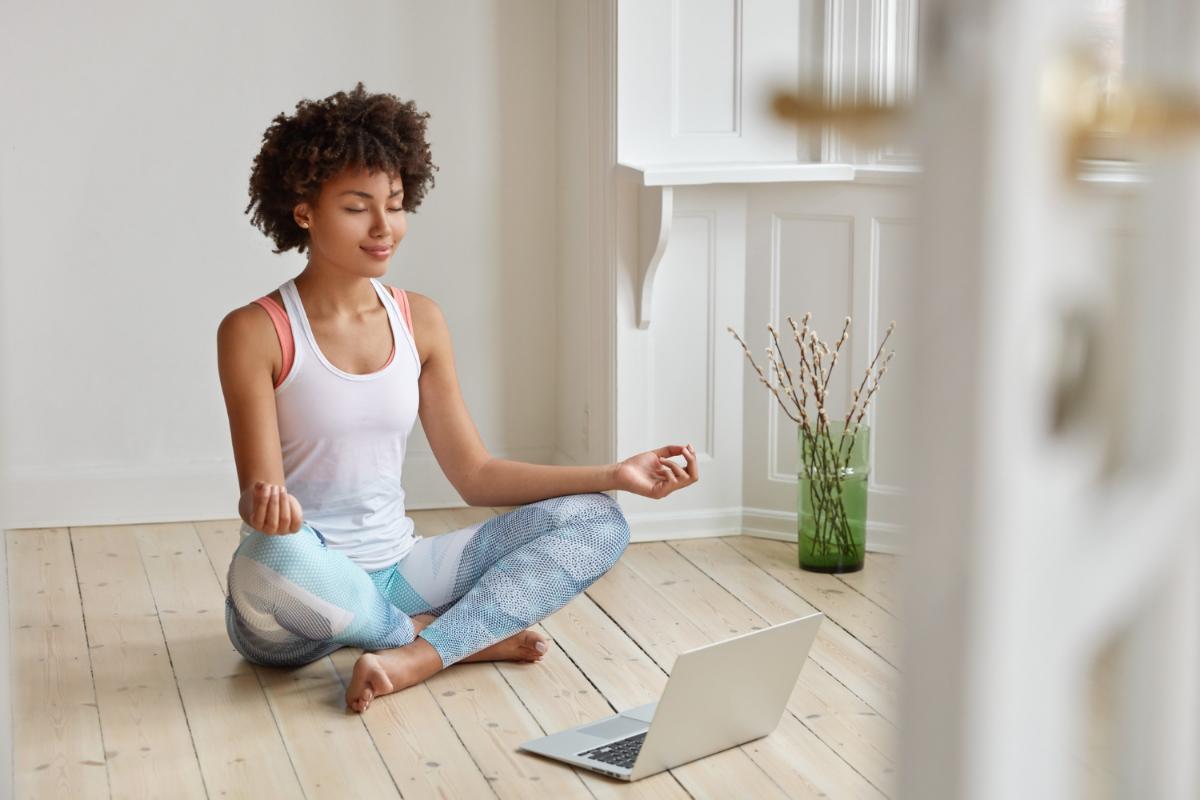Yoga for Better Mental Health

In the mental health field, counselors who specialize in anxiety relief, stress management, or mood regulation, often suggest supplements to individual counseling alone. Many individual counselors that practice holistic wellness suggests clients incorporate strategies that help heal physiological symptoms of anxiety, depression, stress, grief, and many others while they are in mental health therapy. This is an option that many people prefer for long-term relief rather than taking medications for symptom relief.
There are many strategies that work with your individual therapy and are not invasive. These strategies allow you to manage uncomfortable symptoms without side effects while you work on your mental health. Yoga is one of the oldest known strategies that has been proven to provide benefits to mental health, mood, physiological symptoms, and overall quality of life. It is easily accessible and can be done at home.
Just keep breathing

When practicing yoga, the breath is key. Whether you are in a sweaty vinyasa flow, calming restorative class, or seated meditation. By focusing your attention on the breath, you can begin to calm the mind, cultivating focus and present-moment awareness. Slow, controlled, deep breathing activates the parasympathetic nervous system- the relaxation response of the body.
Through this diaphragmatic (i.e. “full belly”) breathing, the Vagus nerve, a cranial nerve, gets stimulated. This nerve is attached all the way down to the various body and organ systems signaling information from these systems to the brain. Stimulation of the Vagus nerve through deep breathing is known to reduce feelings of stress, anger, and inflammation. In this way, yoga can be a great adjunct to anxiety therapy.
Be mindful
The peaceful awareness that can be achieved through intentional breathing is mindfulness. In other words, mindfulness is a non-judgmental awareness of the present moment. Not all yoga teachers or classes will emphasize mindfulness, but many do. In my opinion, yoga without mindfulness is just exercise/stretching. Mindfulness is often taught in anxiety therapy, as well, and can be incorporated into almost any activity that you do.
You can get into the habit of making your yoga practice a mindfulness practice even when the teacher does not cue you to be mindful. Simply focus your attention on your breath, the sounds around you, and the physical sensations within your body to activate a mindful state-of-being. And remember, when thoughts come up, simply acknowledge them and let them go as you refocus on breath and body sensations.
Taking these principles of yoga and applying them to other activities in your life, off the mat, will help you to boost your mood and find more peace in your life.
Get Active

Getting in plenty of physical activity on a regular basis has been linked to improved mood and reduction in stress. When you practice vinyasa/power yoga, you will be sure to get in a sweat, and those feel-good neurotransmitters will flood your brain with a happiness boost. Exercise can largely impact your mental well-being. It is a great way to let out anger and stress.
Find Peace
Traditionally, yoga is a spiritual practice. Whether you believe in god(s), a higher power, or the universe, yoga can be a place to connect with your spiritual self. Often in yoga, you will be asked to set an intention, send yourself and others loving kindness, to draw your hands in a prayer position- signifying the opening of your heart, etc.
There are many hand placements and gestures in yoga aimed to cultivate a sense of surrender, trust, and openness- this is the spiritual practice of yoga. It is the practice of love, compassion, trust, truth, and surrender. Many students of yoga find a connection to something deeper than the physical world.
In fact, a sense of connection with something greater than yourself has been linked to psychological well-being in the scientific literature. Like the benefits listed above, spirituality can enhance your results in anxiety therapy as you garner a sense of trust that God, the universe, or something out there has your back. With a sense of trust, it becomes easier to let go of life’s stresses.

Krista Knowles is a registered mental health counselor intern at Orlando Thrive Therapy. She is also a certified yoga instructor. She specializes in anxiety relief and mindfulness strategies. She is also passionate about nutrition and the impact it can have on overall mental health and wellbeing. To book an appointment with Krista, please contact Orlando Thrive Therapy today for more information.
